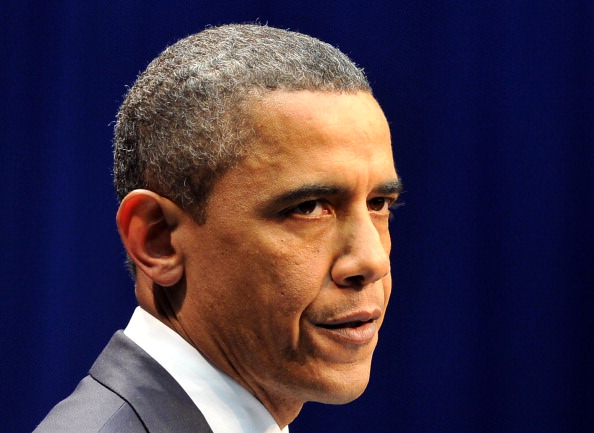During the 2008 presidential campaign, I wrote a comparison of Barack Obama’s Philadelphia speech on race with Abraham Lincoln’s Cooper Union address during his own 1860 campaign. I noted that both men had to separate themselves from embarrassing associations—Lincoln from John Brown’s violent abolitionism, and Obama from Jeremiah Wright’s black nationalism. They had to do this without engaging in divisive attacks or counter-attacks. They did it by appeal to the finest traditions of the nation, with hope for the future of those traditions. Obama renounced black nationalism without giving up black pride, which he said was in the great American tradition of self-reliance:
It means taking full responsibility for our own lives—by demanding more from our fathers, and spending more time with our children, and reading to them, and teaching them that while they may face challenges and discrimination in their own lives, they must never succumb to despair or cynicism; the must always believe that the can write their own destiny.
In a situation where his critics trumpeted “family values,” he spelled out what those really are. I concluded by saying, of Lincoln and Obama: “Each looked for larger patterns under the surface bitternessses of their day. Each forged a moral position that rose above the occasion for their speaking.”
The New York Review wanted to publish a booklet printing the Lincoln and Obama speeches together, but the Obama campaign discouraged that idea, perhaps to avoid any suspicion that they were calling Obama a second Lincoln. Well, I am willing to risk such opposition now, when I say that his Tucson speech bears comparison with two Lincoln speeches even greater than the Cooper Union address. In this case, Obama had to rise above the acrimonious debate about what caused the gunman in Tucson to kill and injure so many people. He side-stepped that issue by celebrating the fallen and the wounded and those who rushed to their assistance. He has been criticized by some for holding a “pep rally” rather than a mourning service. But he was speaking to those who knew and loved and had rallied around the people attacked. He was praising them and those who assisted them, and the cheers were deserved. He said that the proper tribute to them was to live up to their own high expectations of our nation. It was in that context, and not one of recrimination, that he called for civility, service—and, yes, heroism—in the country.
In preparing his speech, Obama had called and talked to the hurt and the survivors. He could tell their personal stories. Michelle Obama invited the family of the murdered nine-year-old to visit her in the White House. Obama came to the speech from the bedsides of those who had been wounded. Their message to him was one of dedication: “They believed, and I believe, that we can be better.” This rang a bell with me. It reminded me of the lesson of the fallen that Lincoln took from Gettysburg—“that from these honored dead we take increased devotion to that cause for which they gave the last full measure of devotion.” At Gettysburg Lincoln might have been expected to defend the North and blame the South—which is what Edward Everett did in the speech preceding his. Rather, the bulk of his speech was given to praising the dead and urging others to learn from them.
Lincoln might have been expected in his Second Inaugural Address to trumpet the gains of the North and the setbacks to the South. Instead, he invited all Americans to grieve for the tragic war and to share blame for the historical crime of slavery. God “gives to both North and South this terrible war as the woe due to those by whom the offense came.” Death should forge a bond among the living. “The loss of these wonderful people should make every one of us strive to be better.” Obama stepped around the obvious and divisive sifting of wrongs done, to urge the doing of right.
The sharing of praise for all who suffered and aided the suffering made me think of another speech, Henry V’s at Agincourt. That is a kind of proleptic memorial for all who fought with their brother the king, looking forward to the future celebration of such heroes. The prologue to the Agincourt act describes how visits from the king cheered his men, giving them “a little touch of Harry in the night.” Shakespeare makes oblique reference here to “the king’s touch,” which was supposed to heal people. In a more superstitious age that is how people might have seen the fact that the wounded congresswoman, Gabrielle Giffords, first opened her eyes right after Obama visited her. Congresswoman Debbie Wasserman Schultz, her friend who was in the hospital room when she opened her eyes, says that the moment seemed as miraculous as when her children were born.
Advertisement
The loudest cheers at the Tucson speech were for the news that “Gabby,” as she is known to all her many friends, was recovering. Perhaps there was the sound, there, of a nation recovering.




